President’s Welcome Address Sets Stage for 60th Academic Year
While highlighting milestones from California State University, Northridge’s storied six decades, CSUN President Dianne F. Harrison looked to the future in her annual Welcome Address to kick off the university’s 60th academic year, illustrating how the institution must prepare students for careers in a modern economy that requires critical thinking, problem solving and innovation.
The nearly 40,000 students enrolled for the academic year that began Aug. 25 will graduate into a world of constant technological change, and they likely will face work lives consisting of many different and distinct careers. Harrison quoted Northeastern University president Joseph Aoun, noting that CSUN students must be educated and prepared to be “robot proof.”
“The world is changing, and the future of work is changing — society and employers are asking us to change as well,” Harrison said. “We must if we are to remain relevant and prepare students for careers and lifelong learning.”
Change, evolution and student success were consistent themes in her Aug. 23 address, which showcased the numerous accomplishments of the university’s students, faculty and staff, while also addressing opportunities and challenges of the new academic year. CSUN is celebrating its 60th anniversary with a Grand Reunion in October, and Harrison intertwined stories of the past (a first graduation class of less than 100) with snapshots of the present (a record-breaking 2018 graduating class of more than 11,500) to demonstrate what she referred to as CSUN’s “relentless pursuit of helping students achieve their educational goals.”
“Though some of the challenges students face may have evolved and changed, CSUN’s historic commitment to access, and to support students and advance their academic success, remains strong and unchanged,” Harrison said.
The venue for the address itself, the Younes and Soraya Nazarian Center for the Performing Arts, marked a historic milestone for CSUN — the sparkling center is now known as The Soraya, in recognition of a $17 million gift from the Y&S Nazarian Family Foundation, the philanthropic foundation of Younes and Soraya Sarah Nazarian and their family.
The speech noted historic and recent successes for each of the university’s planning priorities — from expanding research activity and sponsored programs to fostering diversity and inclusive excellence — with particular focus throughout on student success and boosting graduation rates.
The achievements Harrison highlighted included the College of Science and Mathematics exceeding $10 million in grants for the fourth year in a row; Associated Students allocating nearly a quarter of a million dollars to student research, the largest student government grants for student research in California; CSUN’s new Health Equity Research and Education Center, which will be hosted in the university’s first-ever, 10,000-square-foot research building, Lilac Hall; and the opening of the first Sustainability Center in the California State University (CSU) system.
CSUN has used a variety of methods to improve student success, progressing toward graduation goals for the year 2025 set forth by the CSU chancellor’s office and the CSU board of trustees — CSUN’s initiative is called “Matadors Rising.” CSUN is using technology to support student success, including the “Ask Matty” and “CSUNny” chatbots (computer programs that can conduct conversations). A new website and mobile app will provide information on the basic needs and services available to students.
Harrison noted recent gains in graduation rates, particularly among transfer students. The university’s retention rate for fiscal year 2016 freshmen was 81 percent, a 3-point gain over the fiscal year 2015 group and the first time in years CSUN has achieved a retention rate in the 80s. These improvements — fueled by a new Student Affairs peer mentor program, smaller class sizes, a pilot early-alert system and awareness campaigns highlighting appropriate unit loads — help students learn the skills they need to keep up with the requirements and demands of the evolving economy.
Harrison highlighted multiple programs that infuse critical thinking into the curriculum, including the newly launched Department of Criminology and Justice Studies, Bull Ring new venture competition, AppJam mobile app development competition and AI-Jam artificial intelligence problem-solving competition.
“In today’s modern economy, it is important we ensure students are lifelong learners who are flexible and adaptable,” Harrison said. “The ability to innovate is paramount.”
Biology professor Mary-Pat Stein, president of the Faculty Senate, opened the program and welcomed new faculty members, staff and leadership.
“Together, we all share the same goal — to help students achieve success in whatever form that takes,” Stein said. “Faculty, staff and administrators will need to come together this year to continue providing opportunities for our students to not only achieve but to excel.”
Beverly Ntagu, president of Associated Students (AS), noted that she represented CSUN students in many ways, but said that her role was not about her or even AS.
“It’s about 40,000 students that applied, got accepted or transferred to this institution,” Ntagu said. “It’s about the hard work, dedication and time that the faculty and staff and so many key student leaders will put into this year to make sure that every student feels at home when they walk on this campus, that every student’s needs are met and they exceed their own expectations.”

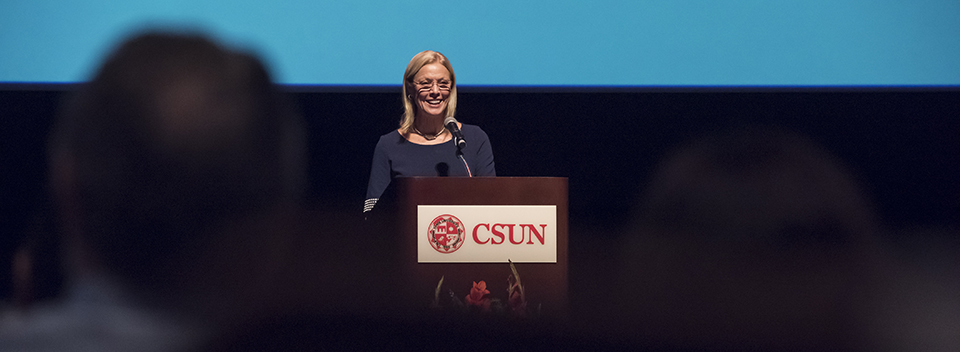
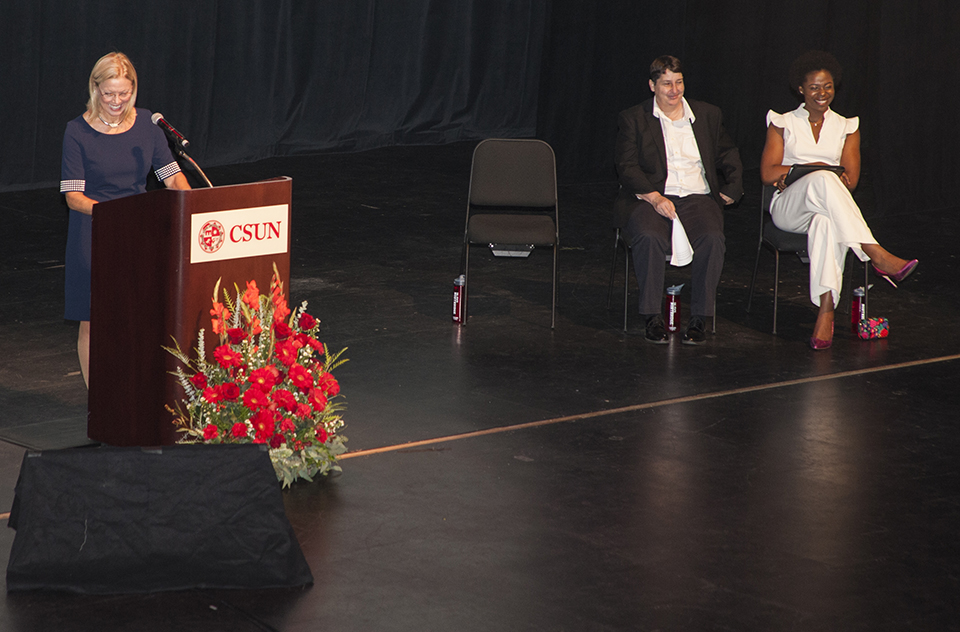
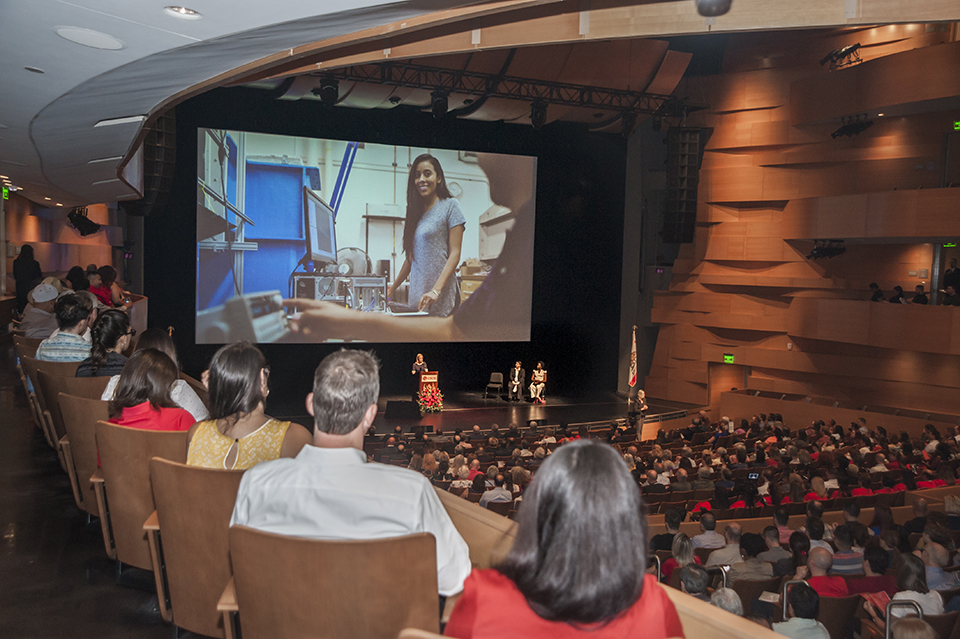
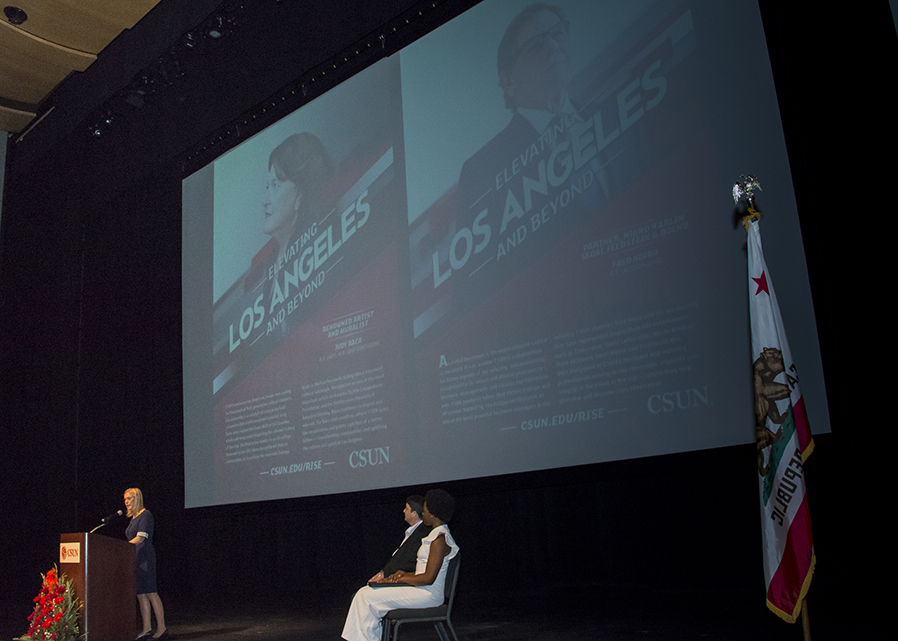
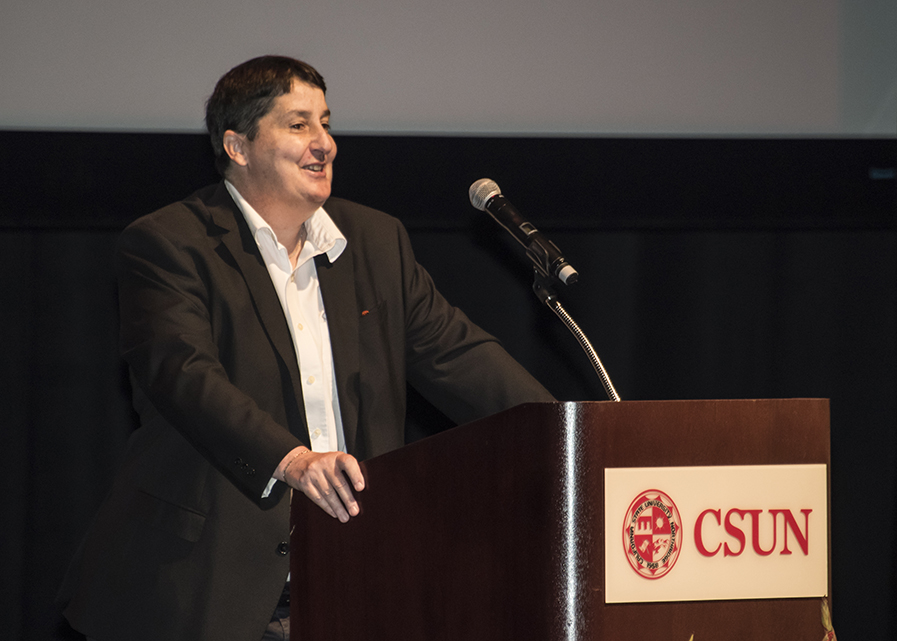
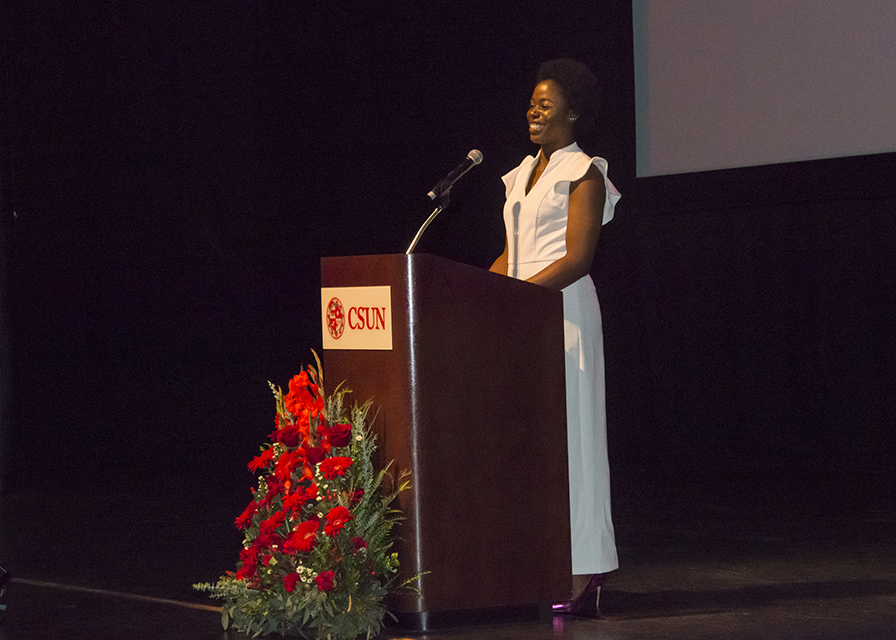

 experience
experience